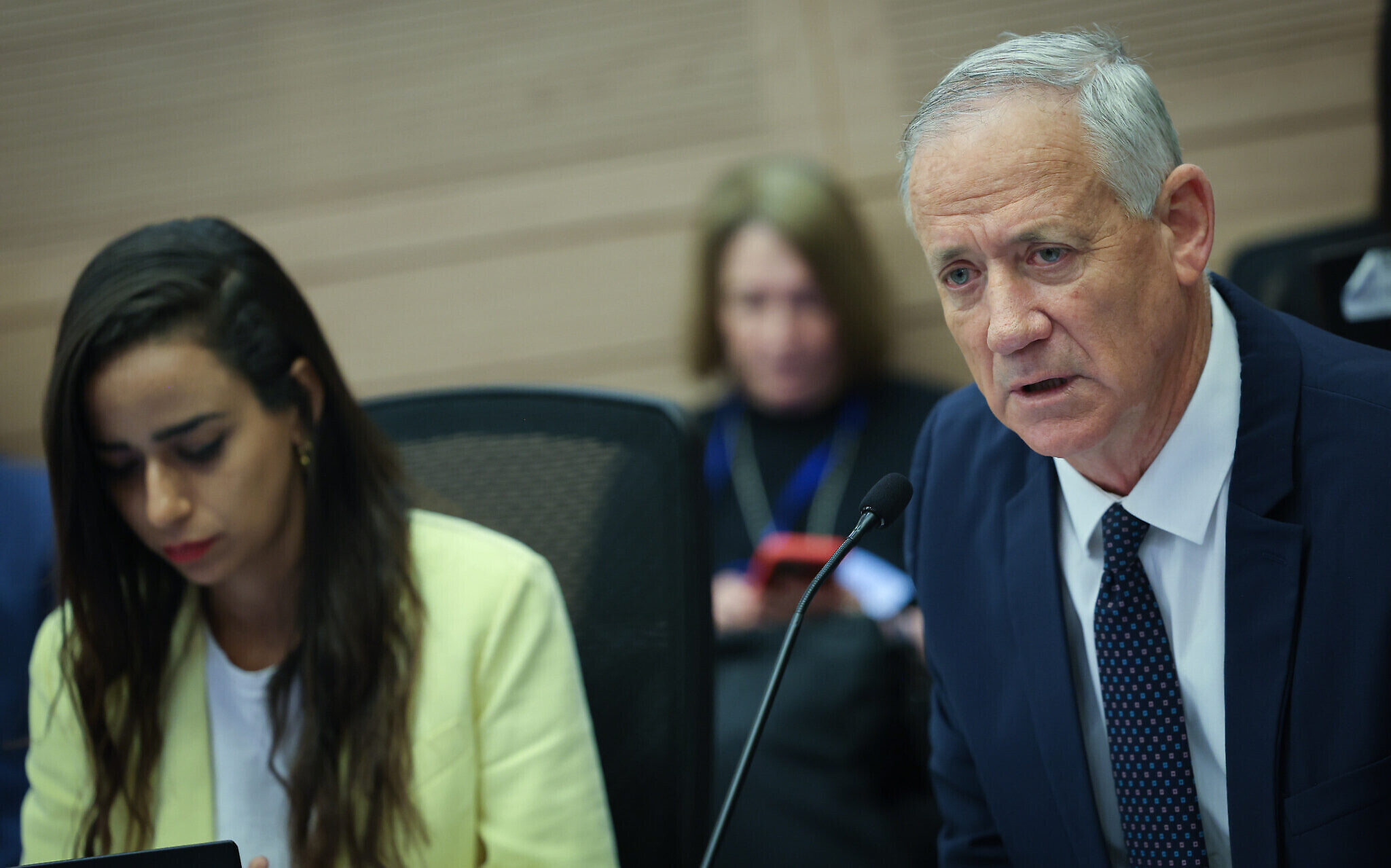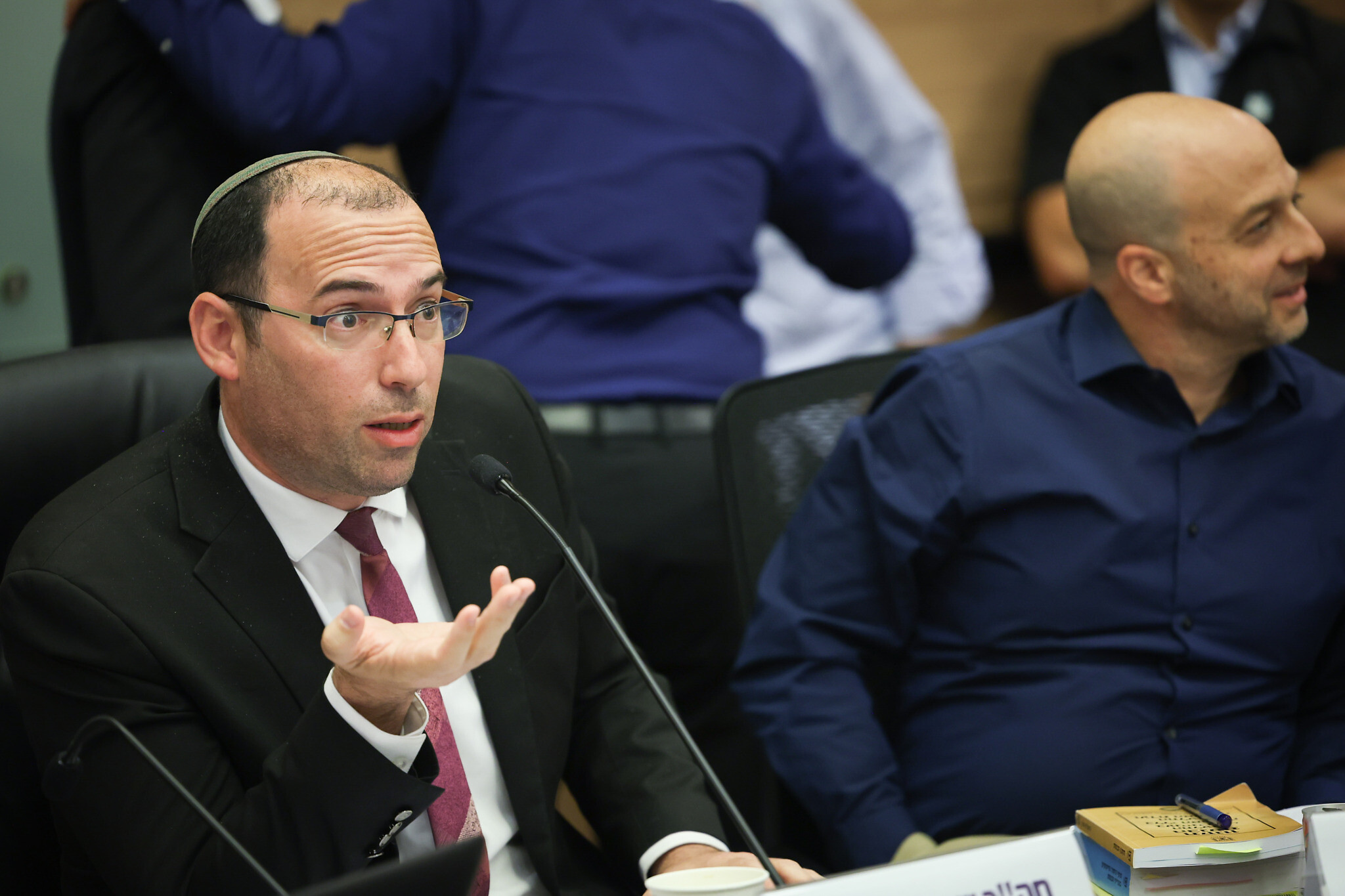PM said ready to ‘go all the way’ with reasonableness bill to limit judicial review
Netanyahu expected to wait until legislation goes for 1st Knesset reading to gauge public reaction before deciding if other elements of overhaul will be advanced in current session

Prime Minister Benjamin Netanyahu has reportedly decided to “go all the way” and unilaterally push through the coalition’s bill to broadly outlaw judicial review of the “reasonableness” of government or ministerial decisions, hours after officially restarting the judicial overhaul.
The premier made the decision after meeting Sunday night with Justice Minister Yariv Levin, Strategic Affairs Minister Ron Dermer, and Regional Cooperation Minister David Amsalem, who also serves as a minister within the Justice Ministry, Hebrew-language media reported.
According to the Ynet news site, the four discussed whether other planks of the judicial overhaul should be legislated before the Knesset goes on summer recess next month. The report said Netanyahu decided to “go all the way” on the “reasonableness” bill.
Levin and Amsalem were said to have pushed for as much to be passed as possible, including a version of highly contentious legislation that would change the makeup of the Judicial Selection Committee.
The reports said that no final decision had been made on the matter.
However, the Walla news site said Netanyahu will decide whether to advance more elements of the overhaul during the current Knesset session after the reasonableness bill goes up for its first reading in the plenum.
Netanyahu “wants to examine the consequences and public reactions of the protesters before taking further steps,” a source briefed on the meeting told the outlet.

The Knesset’s Constitution, Law and Justice Committee was set to convene on Monday for a second day of renewed discussions on the reasonableness bill.
On Sunday, bill sponsor and committee chair, far-right Religious Zionism MK Simcha Rothman said the legislation “serves the democratic interest” by giving more weight to the decisions of elected leaders than to those of unelected judges.
In a heated debate, opposition lawmakers slammed the bill as the first step in a collective vision to curtail judicial checks on political power.
Opposition party head Benny Gantz said that canceling court oversight over the “reasonableness” of decisions made by ministers and other elected officials sets the stage for corruption.
“This is a law for whitewashing corruption. It’s a law that removes limits from the government,” the National Unity party chief told the committee.

Despite freezing judicial reform negotiations two weeks ago, Gantz called on the coalition to “stop it all” and meet his conditions for returning to dialogue: electing and seating the Judicial Selection Committee, and not pursuing unilateral overhaul legislation.
While he did not address the committee directly, opposition leader Yair Lapid similarly called on Netanyahu to halt the reasonableness bill.
According to the text of the bill — presented as an amendment to the existing Basic Law: The Judiciary — the courts, including the High Court of Justice, would no longer be able to even hold hearings over the reasonableness of a decision, or invalidate decisions made by the prime minister, the cabinet, ministers, or other elected officials merely based on their reasonableness.
The court will still be permitted to use the reasonableness yardstick for decisions made by unelected officials.
A spokesperson for Rothman said that the committee will have to decide which elected officials — apart from the cabinet and its individual ministers — would be shielded by the bill, which currently reads “other elected officials determined by law.”
Such blanket curtailments are “too broad,” said the Knesset Constitution Committee’s legal adviser, Gur Bligh, who also testified that the bill should be limited to focus only on specified areas of decision-making.
Rothman and Levin — the key architects of the government’s contentious judicial overhaul plan — have argued that use of the reasonableness test, which allows the courts to judge whether the considerations behind a government or ministerial decision were assigned the proper weight, gives the High Court far too wide a scope to intervene in decisions that should be the purview of the government and elected officials.

If passed before the Knesset goes on summer recess at the end of next month — as the coalition hopes — the legislation would mean that there would be no judicial review of the appointments of elected officials.
Reasonableness has been the primary judicial check against appointments, and was used earlier this year to remove Shas leader Aryeh Deri from twin cabinet postings — as minister of health and the interior — citing his recent tax offenses and past bribery conviction, and his commitment to quit the Knesset as part of a plea bargain.
The bill was prioritized by the coalition shortly after opposition lawmakers withdrew from judicial reform compromise talks following a stymied election of MKs to the Judicial Selection Committee earlier this month.
Opposition lawmakers have warned that without the reasonableness protection, the government would be able to fire the attorney general and appoint personal cronies in her place — an example raised at Sunday’s committee meeting — and attacked the reasonableness bill as the first step in a ruinous legislative strategy.
“This is part of a full plan to hurt democratic institutions,” said National Unity’s Orit Farkash Hacohen, who charged that at the root of the overhaul lay “corruption.”
Yesh Atid lawmaker Karine Elharrar added that eliminating the reasonableness test over decisions by ministers and other elected officials “is the first thing in the Poland protocol,” a reference to recent governmental changes in Poland that have been decried as anti-democratic.
“They do it bit by bit, in moderate steps, and in the end they control the system,” she said.

Coalition lawmakers defended the proposed bill on Sunday, saying that elected officials are those who should be making policy, not judges.
“It’s not reasonableness, it’s policy,” said Likud MK Amit Halevi. The court “swaps” its position for that of elected officials, he charged.
Tens of thousands demonstrated against the judicial overhaul across the country on Saturday evening for the 25th week in a row.
Carrie Keller-Lynn contributed to this report.









